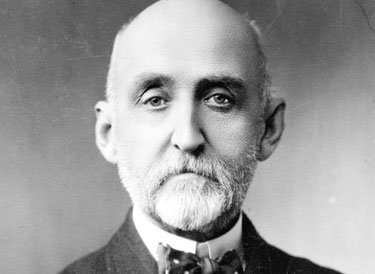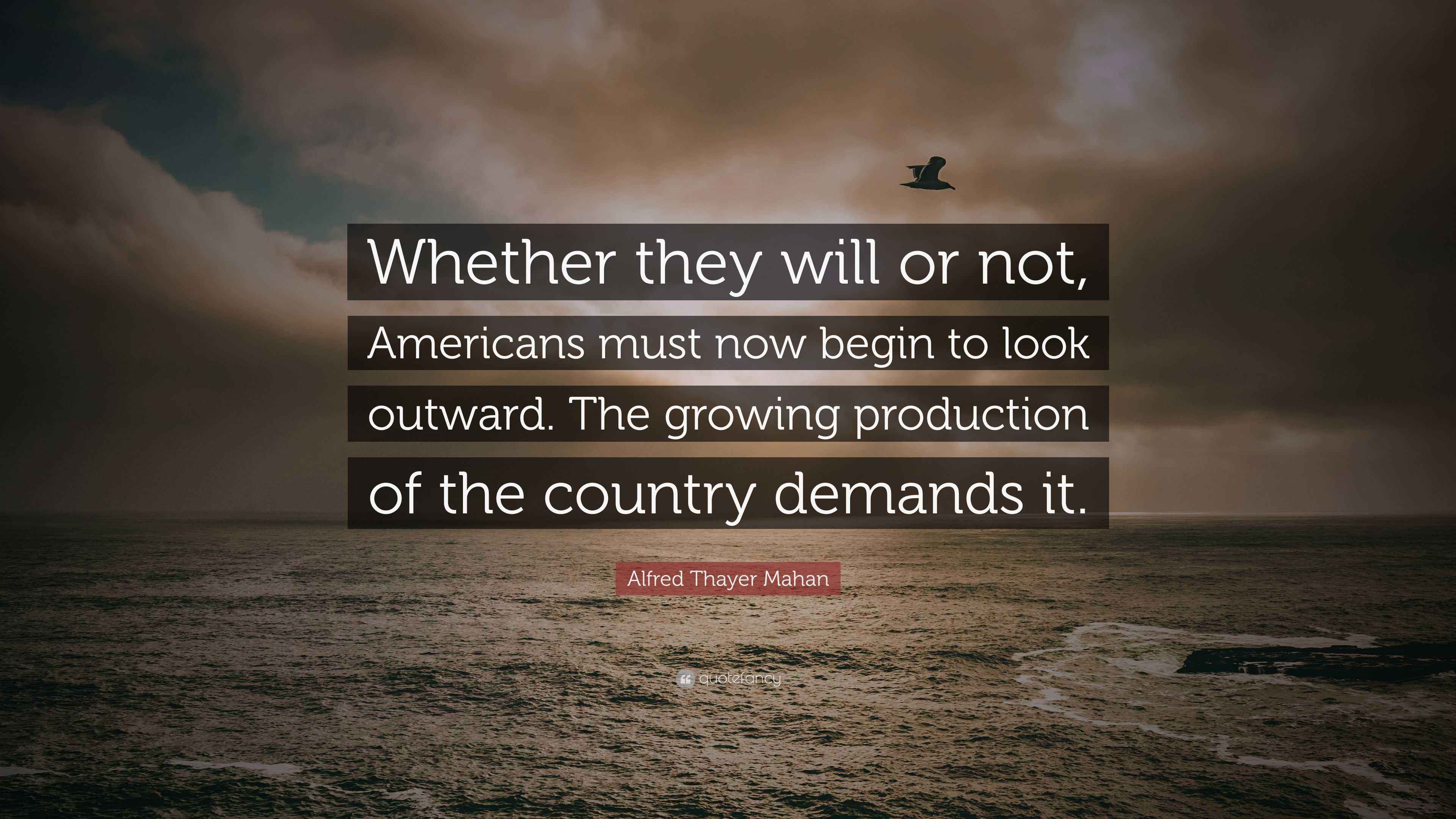


He believed that the increased speed of communication, and a view of national greatness that was purely economic, tended to make the new global international order excessively sensitive to disruption. The rapid advance of modern technology created an increasingly interconnected world and Mahan perceived that while there were reasons to maintain the status quo, there were also other motivations at play. It was apparent to him that in the new century’s international relations “the maintenance of the status quo, for purely utilitarian reasons of an economical character, has gradually become the ideal.” Mahan wrote that, “the vast increase in the rapidity of communication, has multiplied and strengthened the bonds knitting the interests of nations to one another, till the whole now forms an articulated system.” He recognized that the interaction between nations was increasingly economic. Today’s writers would have said that the world was experiencing globalization. Economic interests took a primary place in the interaction between nations and the development of rapid transportation and communication systems, driven by steam power and undersea telegraph cables, began to link the globe. Increasing consumption at the end of the 19th century led to a rise in living standards for most Americans, and other Western nations, when compared to the rest of the world. Mahan wrote in a time of change and international development. Much of his strategic thinking is applicable today, and deserves consideration as the maritime world faces the challenges of the new century. The world that his Navy faced at the end of the 19th century has many similarities to the one we are experiencing at the opening of the 21st century. His writings cover a multitude of topics from combat leadership to global strategy. As the 20th century approached, and after its turn, the preeminent American Navalist penned over a dozen books and several dozen articles. While they focus on his single most famous work, and unthinkingly repeat decades old analysis taught by some academics, few of these writers appear to have actually read the works of Alfred Thayer Mahan. We have been encouraged to dismiss him because of his focus on battleships, or because his approaches are outdated. They point to his book The Influence of Seapower Upon History, with its focus on the age of sail, and say that he has nothing to offer the modern and high technology military forces of today. They tell us that he wrote for a different time, and a different United States of America. In recent years it has become common for naval leaders and analysts to discount the strategic thinking and writing of Captain Alfred Thayer Mahan. As the Department of Defense and the United States Navy enter a time of change and restructuring, there must be a strategic vision behind the decisions that are made for the future. With these administrative and force disposition challenges as a background, the United States faces a world defined by globalization, instability, and rising powers. Budgetary struggles look to shrink the future force and only make the problems worse.

Maintenance and readiness issues that have been put off for a decade, in order to cut costs and support the Navy’s Fleet Response Plan deployment concept, have begun to impact the fleet. Operational requirements outpace the ability of the Navy to maintain and deploy the required assets to meet the demands of combatant commanders. In the second decade of the 21st century the United States Navy faces a multitude of challenges.


 0 kommentar(er)
0 kommentar(er)
